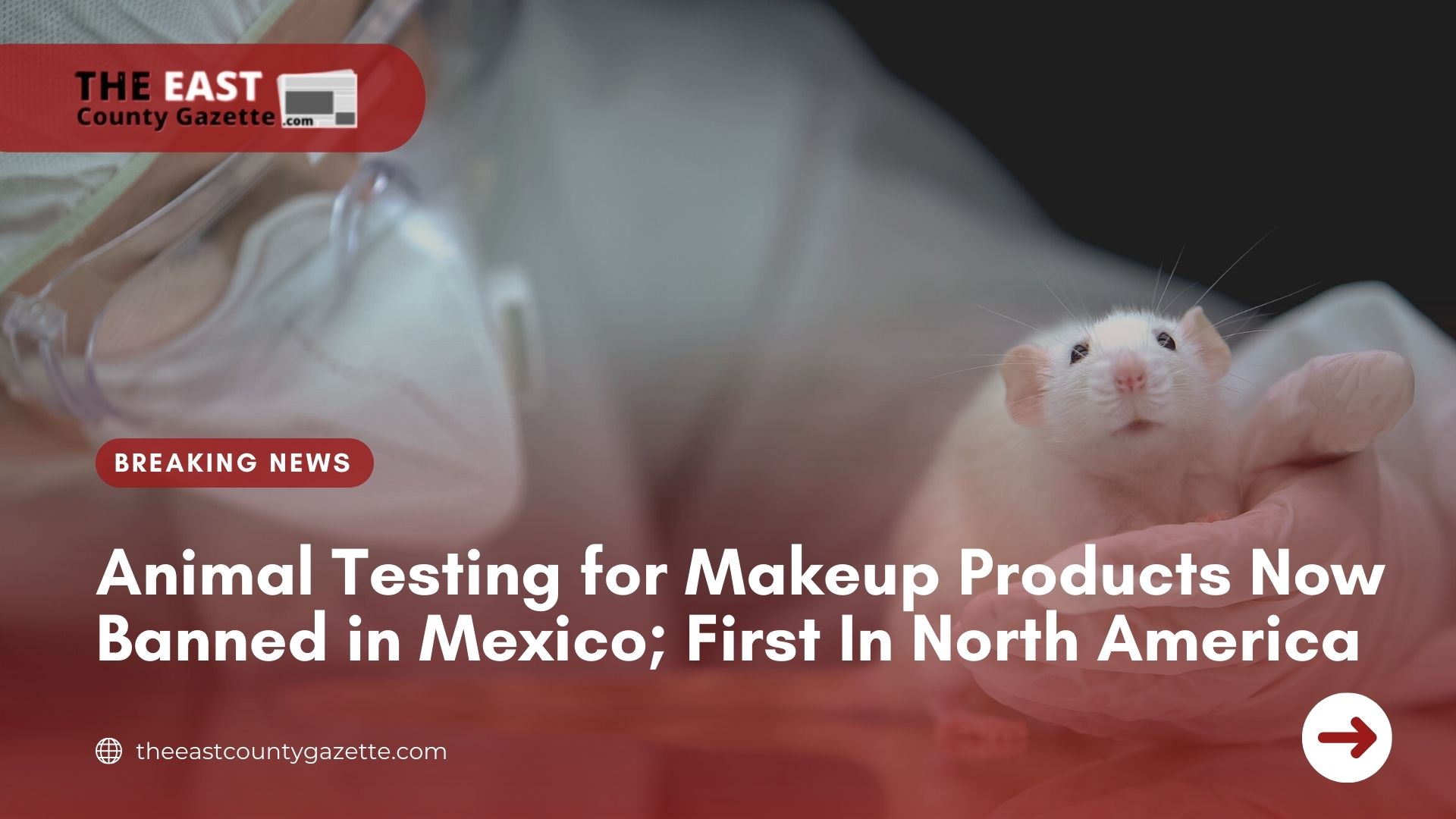Mexico has become the first North American country to ban the use of animal testing for cosmetics. In the whole world, Mexico is only the 41st country to enforce this ban.
As of now, only seven U.S. states currently have laws in place banning animal testing for cosmetics– California, Hawaii, Illinois, Maine, Maryland, Nevada, and Virginia. Three more U.S. states, New Jersey, Rhode Island, and New York, are also processing their own animal-testing bans.
Humane Society International Executive Director Antón Aguilar says “This is a monumental step forward for animals, consumers, and science in Mexico, and this ground-breaking legislation leads the way for the Americas to become the next cruelty-free beauty market and brings us one bunny-leap closer to a global ban.”
Recent Article: Hospital Crisis in States with Low Vaccination Rate – Mississippi.
In the United States, the FDA prohibits the sale of mislabeled and “adulterated” cosmetics, but do not prohibit animal testing. However, these kinds of tests are not required either.
According to The Humane Society, several invasive tests are performed on rabbits, mice, guinea pigs and rats. These can include:
- Skin and eye irritation tests where chemicals are rubbed onto the shaved skin or dripped into the eyes of restrained rabbits, without any pain relief.
- Tests that deliver doses of chemical substances to mice through repeated force-feeding. These tests last weeks or months so researchers can look for signs of general illness or specific health hazards such as cancer or birth defects.
- Widely condemned “lethal dose” tests, in which rats are forced to swallow large amounts of chemicals to determine the dose that causes death.
At the end of some tests, the animals are killed, normally by asphyxiation, neck-breaking or decapitation. Pain relief is not provided. In the United States, a large percentage of the animals used in such testing (such as laboratory-bred rats and mice) are not counted in official statistics and receive no protection under the Animal Welfare Act.
Recent Article: Texas Governor: Abortion Law Does Not Need Rape Exception.
The Humane Society continues to advocate against animal testing. They said there are many more alternatives to animal testing, challenging companies to go cruelty-free. On their website, they said: “There are already thousands of products on the market that are made using ingredients with a long history of safe use and do not require additional tests.
Companies can ensure safety by choosing to create products using those ingredients. Companies also have the option of using existing non-animal tests or investing in and developing non-animal tests for new ingredients.
Recent Article: Solar Power Could Potentially Provide Electricity to About 40% of the U.S.
Nearly 50 non-animal tests are already available, with many more in development. Compared to animal tests, these modern alternatives can more closely mimic how humans respond to cosmetic ingredients and products; they are also often more efficient and cost-effective.
Advanced non-animal tests represent the very latest techniques that science has to offer, replacing outdated animal tests that were developed decades ago.”

